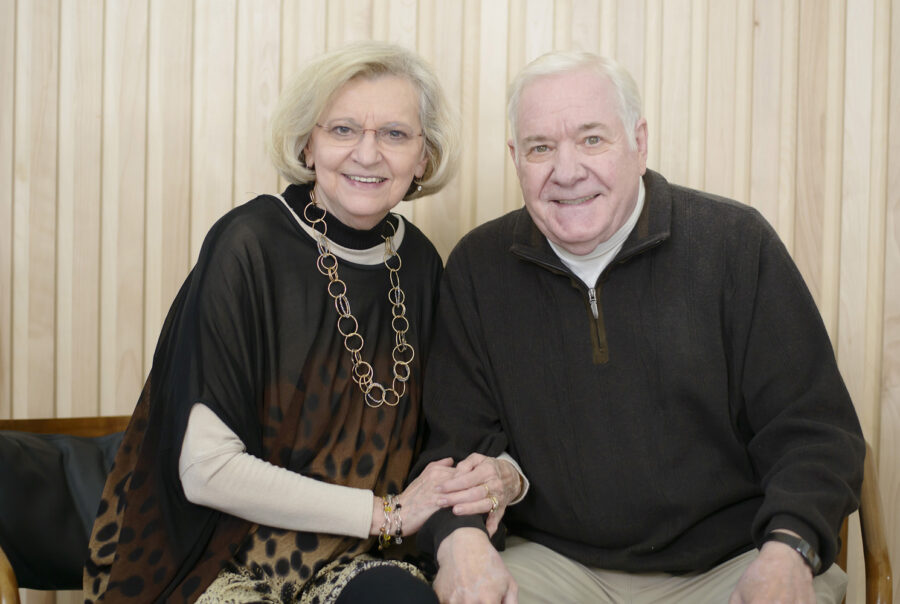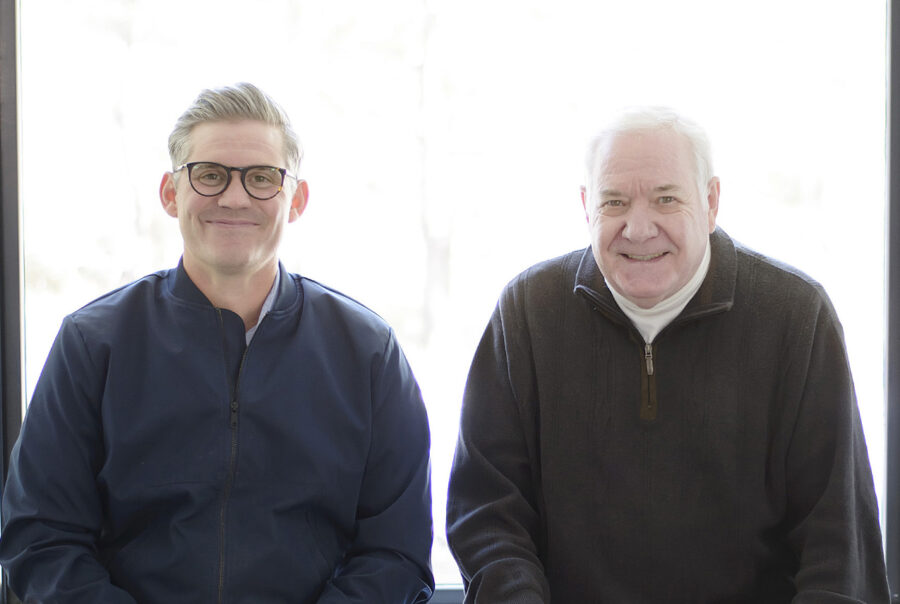A Good Inheritance
by Tanner Peake
Once a month, my wife and I share a meal with the couple who has gone before us: Dick and Dee Eastman, who have led the organization we are inheriting for more than 30 years. As we prepare to take the baton they’re passing to us, we want to know their story.
That night, the restaurant patio was full of distractions. Flies hovered around the chips, the table, and my head. I wanted another tortilla for my fajitas. I was thinking about my kids at home, hoping they remembered to do their homework. I could hardly hear over the background noise, and my ADHD wasn’t helping. But I knew this moment would stay with me as Dick and Dee answered my question: What was it like in those early days, when, as a young couple, they became leaders of the global evangelical organization they have now been with for 30-some years?

Dee and Dick Eastman
I heard enough to understand that the last “transfer of power” for the organization wasn’t ideal. The ministry, at that time, wasn’t healthy. Prior to the Eastmans, the leadership had been spiritually abusive in many ways, with a history of shaming and manipulating the staff into unhealthy levels of loyalty. Staff and partners—key stakeholders of the organization—were disillusioned, emotionally exhausted, and didn’t know who to trust. There were legal concerns. The organization’s global affiliates felt cheated by their American counterparts.
It was a mess. And according to Dick and Dee, there wasn’t much hope or vision for the organization to move forward.
I wondered what could have compelled Dick and Dee to agree to take over this organization in such distress. They were young leaders. On paper, the decision to step away from their stable life and into leadership over a toxic organization made no sense. It certainly wasn’t a move of upward mobility.
Today, I know the rest of the story: Dick and Dee have transformed the organization in the decades since then. But they couldn’t have known that when they first said “yes.”
As we drove home, a newspaper headline came to mind—one I had read that morning: another story of a “fallen” evangelical leader. Another pastor. Another character failure. Another controversy. Another trauma. Another community of people who would have to figure out how to heal and move forward.
I felt sick over the thought of how many people, today, must do the same thing Dick and Dee did over three decades ago: lead a group of people who have just been betrayed by their spiritual leader.
The Eastmans were asked to help a group of angry and disillusioned people heal, just like so many leaders are doing today. We often don’t know these leaders’ names—those who come after the “fallen stars” of evangelicalism—but what a heavy responsibility they carry. What a challenge. What a thankless job. What a ministry.
I’m sure many Christians today are tired of the headlines. We’re weary of hearing about moral failures. We’re working through varying levels of disillusion and betrayal. We are, or we know, the people who are directly affected. Our hearts bear the wounds.
Some of us have only read the headlines, but we’re still wondering: Why can’t Christian leaders keep it together?
Yet, in as much as I feel outraged over the injustice of narcissistic leaders and their moral fallouts, I am learning also to experience the grace of another kind of leader: the leader who comes after. The ones who don’t make the headlines.
Dick and Dee will be known for many things. But I believe one of the most profound things they accomplished is this: they helped an organization heal.
Many people will never understand this part of the Eastmans’ story. It wasn’t healing that happened in public view. There weren’t nice sneakers or stages or smoke machines. It didn’t happen in board rooms, through fundraising programs, or in front of the masses.
It happened quietly. It happened in prayer. It happened through consistent presence.
I won’t tell you that Dick and Dee are “saints”—they wouldn’t want me to. And healing, especially in a fellowship this widespread, takes time. I’m not suggesting the Eastmans are perfect, but they have done a tremendous amount of good. They have been agents of healing in so many lives.
In all of this, the Eastmans have given me a precious gift: they have given me hope. Because of Dick and Dee, I have hope that leadership—even imperfect leadership—can still do good. I have hope that true ministers of good news still exist. I have hope that human leaders with open hearts can help people and communities heal. I have hope that I can be that kind of leader.

Me and Dick
As I step into leadership over an enormous evangelical organization, active in over 150 nations, this hope was the greatest gift I could receive. And it only could have come from the Eastmans, who have run the race with endurance.
The poet David Whyte wrote, “To give well, appropriately and often is to establish a beautiful seasonal symmetry between the urgency within us that wishes to be generous, and the part of the world that is suddenly surprised and happy to receive.”
The succession process I’ve walked through in the last year hasn’t just been a transfer of power, a new organizational chart, or even a generational iteration of vision or mission. It has been, “a beautiful seasonal symmetry.” Dick and Dee were stirred to give. They gave their lives to this ministry, and now they are giving stewardship over this ministry to me. I want to open my hands, “suddenly surprised and happy to receive.” That, I think, is what it means to succeed someone.
Rabbi Jonathan Sachs says, “Where people give voluntarily to one another and to holy causes, that is where the Divine Presence rests.”
There are a lot of flies at the table. There are so many things to pay attention to. But I invite you to join me: spend a moment in curiosity about your life. What gifts have you been given? Maybe there’s a gift you haven’t even noticed yet—handed over, with grace, from an imperfect vessel. You may find more gifts than you expected, and you may find that in these places, divine presence rests.
Whyte, David. Consolations: The Solace, Nourishment and Underlying Meaning of Everyday Words (Revised Edition). Many Rivers Press. Kindle Edition.
Sacks, Jonathan. Studies in Spirituality (Covenant & Conversation Book 9) (p. 145). Koren Publishers Imprint: Maggid. Kindle Edition.
